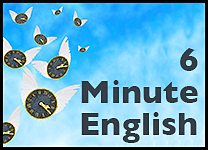Unit 6: English You Need
Exams, news, pronunciation, teachers' tips, learners' questions
Select a unit
- 1 English You Need
- 2 English You Need
- 3 English You Need
- 4 English You Need
- 5 English You Need
- 6 English You Need
- 7 English You Need
- 8 English You Need
- 9 English You Need
- 10 English You Need
- 11 English You Need
- 12 English You Need
- 13 English You Need
- 14 English You Need
- 15 English You Need
- 16 English You Need
- 17 English You Need
- 18 English You Need
- 19 English You Need
- 20 English You Need
- 21 English You Need
- 22 English You Need
- 23 English You Need
- 24 English You Need
- 25 English You Need
- 26 English You Need
- 27 English You Need
- 28 English You Need
- 29 English You Need
- 30 English You Need
Session 1
Are you working towards an important exam? We're here to help with a series of videos that pick out some top tips for studying and taking exams.
Activity 1
Exam skills: 6 tips about training your memory
Train your brain to remember
Many students have problems remembering and using what they have learned. It's good to develop a technique that will train your brain to help you actively remember the things you learn. Watch this video to see our six top tips to help you train your memory - then afterwards test your understanding in our quiz.
Watch the video

Rob
Many students have problems remembering and using what they have learned. It's good to develop a technique that will train your brain to help you actively remember the things you learn. Hopefully our top tips for developing your memory will help.
Start in class by making brief notes on things that are useful and important to you. Then revisit and rewrite these notes immediately afterwards. A good way to clarify facts and make them easier to understand, is to make mind maps. These can be drawn on paper or on a tablet or laptop. This graphical way of representing ideas and concepts helps establish things in your mind.
Another tip is to write condensed notes or cards and stick them where you can see them – such as the kitchen wall. Looking at things over and over again can help you remember. Alternatively, you could write these simplified notes on your mobile phone and set up a reminder to read them regularly.
It's always a good idea to use what you've learnt and to say things out loud – research has found that this will help you remember better. Everyone has a different technique – what does this student do?
Student
When I want to revise for an exam, I visualise a long white tunnel with all the key topics and vocabulary written on the side of it. During the exam, in my mind, I walk down the corridor and can simply bring up all the information I need to remember.
Rob
So that's mnemonics – using association to remember facts. Create an image in your mind to help you remember a word or phrase. Finally, get a good night's sleep – your memory won't work if you're tired. Follow these tips and hopefully your memory will work better for you.
Good luck!
________________________________________________________________________________
Did you like that? Why not try these?
_____________________________________________________________________________________________________________
Here's a summary of our tips about training your memory:
1. Make notes in class and revisit them soon after
2. Draw mind maps
3. Write condensed notes; stick them on the wall
4. Say things out loud
5. Use mnemonics
6. Get a good night's sleep
To do
So what did you discover? Find out by taking our test…
Training your memory – how should you do it?
4 Questions
Answer these 4 questions.
Help
Activity
Answer these 4 questions.
Hint
It helps you find your way aroundQuestion 1 of 4
Help
Activity
Answer these 4 questions.
Hint
It may annoy other people!Question 2 of 4
Help
Activity
Answer these 4 questions.
Hint
Do you want to see them regularly?Question 3 of 4
Help
Activity
Answer these 4 questions.
Hint
It's a time when you need to be alert next morning.Question 4 of 4
Excellent! Great job! Bad luck! You scored:
Next
You can get more tips about training your memory here.
You can listen to our 6 Minute English programme about brain training here and listen to this discussion about how to prepare for an exam.
Have you got any tips about learning strategies and exam preparation that you can share with us? Please email them to us at learningenglish@bbc.co.uk with 'Exam Skills' in the subject line. We will post our favourites here and on our Facebook page. Please note that we can’t reply to individual emails, but we do read all of them
End of Session 1
Join us in Session 2 for News Review, where we'll bring you key words and phrases from the latest stories and show you how to use it in your everyday English.
Session Vocabulary
mind map
a type of drawing with lines and circles for organizing information so that it is easier to use or remember (sometimes called a spidergram)condensed
simplified; containing only the main partsmnemonics
special words or images used to help a person remember something


